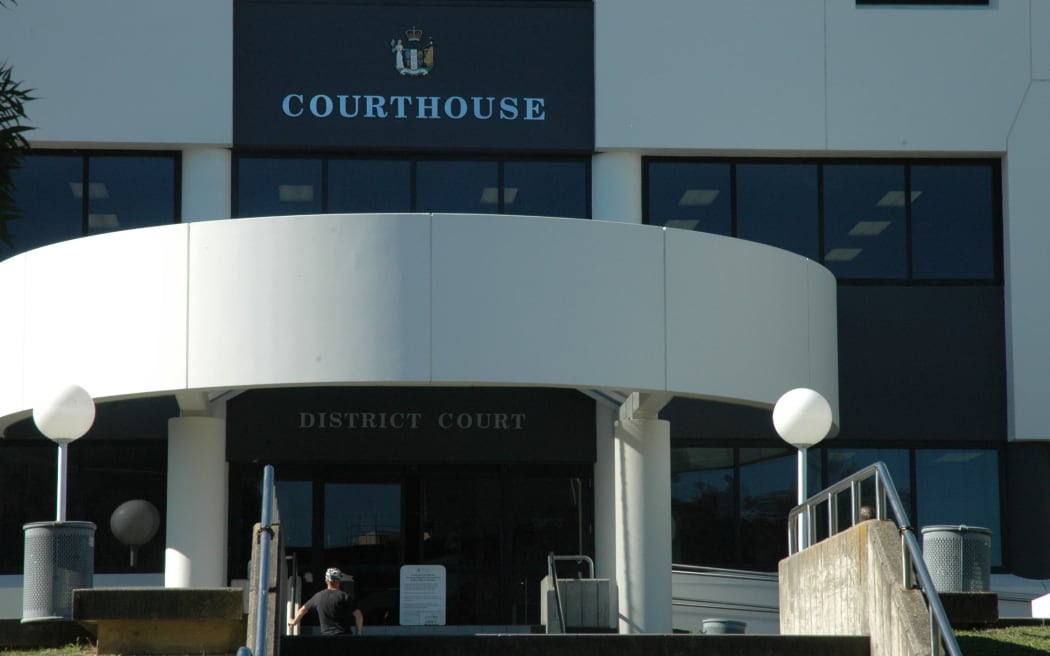The District Court is weighing up how young offenders with brain damage and disabilities can better access support while in the justice system.

Hamilton District Court Photo: RNZ
Many suffer from conditions like foetal alcohol syndrome, autism or brain injuries, and struggle to understand what is going on in court or what their punishment means.
In a statement released yesterday, Chief District Court Judge Jan-Marie Doogue and Principal Youth Court Judge John Walker said they were exploring how to apply Youth Court processes to the District Court to ensure those aged 25 and under were getting the right support.
Principal Youth Court Judge John Walker said it was critical that those handing out the sentences knew who they were dealing with.
"If we're trying to deliver interventions, we need to know whether it's the right intervention for this particular person.
"If they've got disabilities, [such as] dyslexia, and we send them off to a programme where written material is a major part of it without knowing their disability, it's going to be a very ineffective intervention."
The move followed a report by Professor Sir Peter Gluckman, published in June, that showed up to 75 percent of youth in the justice system had a mental disorder.
Dr Nessa Lynch, a senior law lecturer at Victoria University, said changes to the District Court were well overdue.
She said the case of Teina Pora, who was wrongfully jailed for two decades after falsely confessing to the 1992 rape and murder of Susan Burdett, was a great example of what could happen if support was not in place.
"It became clear later on that he had foetal alcohol syndrome disorder.
"That manifested…as being incredibly vulnerable in police questioning. He obviously agreed to a lot of things which, clearly, he hadn't done. I think if we'd known about his condition at that time we could have made sure he had a lawyer and made sure he had appropriate support."
She gave another example of young offenders not understanding simple bail conditions, unwittingly breaching them and ending up back in court.
Private investigator and long-time supporter of Mr Pora, Tim McKinnel, said his would not be the only case of a miscarriage of justice.
"I think broadly speaking there's inadequacy in our criminal justice system and how it deals with some of these really complex issues so any new process that's put in place to deal with these issues I think is very, very welcome.
"I think that some of these disabilities, mental illness and intellectual functioning problems, are a sleeping giant in our criminal justice system so advances like this, I think, are well due."
He said there had been no shortage of cases involving young people with complex needs in recent years.
"I suspect there's many more that have been before the courts that haven't been properly recognised. It's nice to see that the mounting scientific evidence that points to this issue is being recognised."
Sally Kedge, director of Talking Trouble, an organisation for people with intellectual disabilities in court, said there needed to be change.
National and international research showed at least 60 percent of people who go through the justice system struggled to make sense of court jargon, she said.
"We've had examples of young people, perhaps in Youth Court, who have been charged with things like possession of instruments for conversion, which is actually quite a difficult thing to get your head around until you realise it's to do with car conversion.
"We've had young people think that that's to do with maybe being charged with a ram raid on a music shop because maybe instruments is the only context they know."
There's no deadline for when the District Court changes will take place but the Chief Judge's Advisory Board is scheduled to meet again in September.



